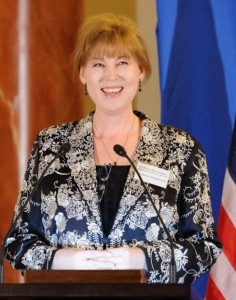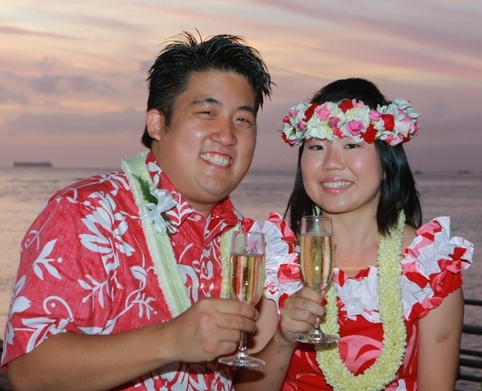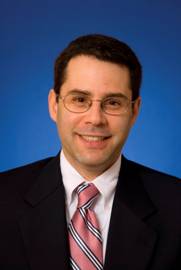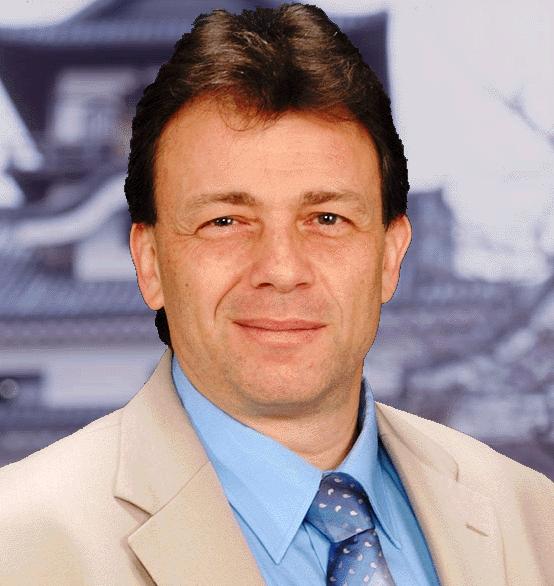CLAIR Magazine “JET Plaza” Series: Patricia Bader-Johnston (Yokohama)
Each month, current and former JET participants are featured in the “JET Plaza” section of the CLAIR Forum magazine. The June 2014 edition includes an article by JET alumnus Patricia Bader-Johnston. Posted by Celine Castex (Chiba-ken, 2006-11), currently programme coordinator at CLAIR Tokyo.
***********
Patricia Bader-Johnston (Yokohama-shi, 1989-91) was one of the first CIRs on the JET Programme. She currently is the Representative Director and CEO of Silverbirch Associates K.K; and is a retained Advisor to Tokyo Business Development Center, as well as a Partner in Thurlestone Capital (a leading clean energy investment firm in the UK). Before founding Silverbirch Associates in 2008, Ms. Bader-Johnston held senior roles in leading companies including Goldman Sachs, BAT and IBM, over a span of 25 years in Japan. She is an active speaker, writer, panel moderator and university lecturer on topics related to CSR and sustainability, globalization trends, and doing business in Japan.

Patricia Bader-Johnston emceeing the Entreprepreneur Business Awards Ceremony 2013 (courtesy of Ms. Bader-Johnston)
I was a CIR in Yokohama City government between 1989 and 1991. It was the year of YES 89, an international expo involving over 60 countries that ran throughout that first year, and set the tone for many of the experiences I had in my early days in Yokohama. It also no doubt helped set a path for my future career in Communications. Working as a member of Yokohama City Hall – City pin in my lapel and all – I not only received the gift of a Key to the City when I left, but also a host of memories and formative experiences that remain with me to this day.
I had already been in Japan for two years before becoming one of four of Canada’s first CIR’s on the (then) brand new and completely unknown JET programme. Because the program was so new, we no doubt benefited from a fair amount of attention and special care in that first year. I had a chance to personally interview Prime Minister Nakasone a few years after I left the programme, and he told me how JET had been meant to emulate the US Peace Corps. He had wanted to bring young foreigners into Japan to “cause positive friction” to force Japanese to internationalize more quickly. He called this programme “Kokusaika.”
In order to have the foreigners live in the country long enough to create this “friction”, they needed to be given something to do over a longer term, so they came up with two types of jobs descriptions: the AET to influence educators and young people, and the CIR to influence local governments.
As a CIR I was exposed to many various experiences that ranged from working in the International Press Center for YES 89 to assisting at UN conferences. I mc’ed an ASEAN conference, interpreted for the Crown Prince and Prime Minister Kaifu when they met the International Director of the Red Cross, helped play host to numerous foreign delegations that ranged from the Vice President of the United States to the Mayor of Vancouver Canada and the Vancouver City Police Pipe Band among others! It was an amazing collection of experiences for a young foreigner in Japan. As the resident Canadian CIR in the Yokohama International Communications and Exchanges Division, I introduced the name that stuck to the Maritime Museum in Yokohama, raised a flag with Mayor Takahide and actress Agnes Chan when the Pacifico International Conference Center opened, and even had the great honor of being named celebrity “Postmaster for the Day” (complete with carrying out his duties for one full day). It was also a great honor to be asked to judge the Horseback Archery competition in Kamakura one year! Through these combined experiences I met many influential people who continue to be a help to me in my career today.
Had I not met officials from the Canadian Embassy in Yokohama through YES 89, I would not have been invited to apply for my next role in Communications and Culture at the Embassy in Tokyo. I was the first non-Japanese to take on a local senior program officer role for them. My network gained through the JET programme made me an asset to the embassy that allowed me to participate in a far greater range of projects, and my Japanese ability, honed through countless formal meetings with Japanese government colleagues, was polite enough for me to represent the embassy at official events. I planned and hosted every Canadian JET welcome event that took place in the eight years I was with the embassy, so have met many Canadian JETs over the years and have even hired some of them since then! Read More
Life After JET: Still Lookin
Posted by blogger and podcaster Jon Dao (Toyama-ken, 2009-12).
————————————————————————————————————

SPECIAL GUESTS:
Nearly one year later, I got Val and Randy back to continue the story of moving past Japan.
Leaving JET: “Dear God, what have I done!?”
By Hollie Mantle (Gunma-ken, 2011-13) who lives in the UK but has great memories of Gumma, home to the wonderful choking hazard konniyaku.
In February some of you would have ticked that fateful box and signed away all ties to that sweet, sweet wage packet and comfortable life you’re living tucked away in one of Japan’s mountainside prefectures, famous for cabbages or sweet potatoes or a particular flavour of senbei. (Oh the fame, the glory!) As it’s coming up to just before home time, I thought I’d give you a few tips just to horrify you into clinging desperately to your futon and make you comfort-eat kara-age as you think ‘DEAR GOD WHAT HAVE I DONE?’ Read More

Some people have issues, and for me, I had Japan issues. When I came back from Japan, I went through a wicked case of reverse culture shock. I lost all sense of identity returning home. In my mind, I’d built myself up as the “international” guy in my circle of friends. So when I was back in Arkansas, despite having the best groups of friends and family one could ask for, I felt like I had nothing. Read More
JETwit Job Hunter Support Project
Autumn Widdoes (Okinawa-ken 2010-2014), a writer with a focus on performance and film, will soon return to the job market. She’d like to put her four years of experience in Japan to good use in future employment.
Hi everyone!
We’re starting an innovative new feature on JETwit to help job-hunting JETs and JET alums with their job searches. We want to post stories and experiences of the post-JET job search in ways that can be helpful to both the profiled job-seeker and to JET/alum readers. If you’d like to have your profile considered, please submit the following information using the Google Form at this link:
FYI, here are the questions being asked on the Google Form:
1. What kind(s) of job(s) are you looking for, and where?
2. What have you do so far in terms of job searching?
3. What have been some of the challenges? What have you found that was positive?
4. What’s the most important thing you’ve learned along the way so far?
5. What would be most helpful for you at this point to help you get a job?
6. Optional: Link(s) to your online resume/CV/LinkedIn profile and/or website/blog.
We’ll periodically post your stories and hopefully this will be helpful to readers and enable others in the JET alum community to help you.
If you have any questions or problems with the Google Form, please email Autumn Widdoes at jetwitjobhunter [at] gmail.com
よろしくお願いします。頑張りましょう。
Life After JET: Gabai Life!-Educational Journeys of an Ex-JET from Saga
By Jose Ariel Ramos (Saga-ken, 1998-2001). Jose recently moved to Central Texas where he now works as a recruiter for a charter school.
Gabai Life!-Educational Journeys of an Ex-JET from Saga
“To know what you prefer instead of humbly saying Amen to what the world tells you you ought to prefer, is to have kept your soul alive.”
-Robert Louis Stevenson
I reach for my phone. I want to check my email. I’m pretty sure there is something important there-a job lead, a response from a recruiter, a rejection, an actual offer. I put it back on the table. I go back to re-writing my resume and looking on JETwit, on Idealist, on Linkedin, on many other websites where jobs are posted. Again. Again. Again. Maybe this time I’d get a yes.
This has been my life for the past eight months: re-writing my resume; re-arranging the cover letter; sending all required documents in; filling in another online form at another job application site. I’ve applied to teaching positions in Japan, Oman, Korea, Singapore, China. I’ve applied to be director for different university overseas programs. I’ve applied to grad school. I’ve probably applied for no less than two hundred or so jobs-I’d lost count a while ago. I’ve gotten about six interviews but no luck. “How did I get here?” I’d find myself asking.
I got on JET right after graduating university with a Music and French degree in 1998. With an open mind and plenty of optimism I went to Saga ken as an ALT to find out what Japan was like. At that time cellphones were just starting to be widely used, dial-up was the common way to connect on the net, and we were still making long distance telephone calls on landlines. Saga was a rural place that had it’s own unmistakable dialect-“Gabai oishika!” I would find myself saying after a meal (Really delicious!). I made plenty of mistakes but made plenty of friends, and I had incredible experiences. The first times I went snowboarding, white-water rafting, even bungee jumping were in Japan. Three years of adventure with other adventurous people. I decided back then that that was the kind of life I wanted to live-a life of voyage, excitement, freedom.
I came back home in 2001 right before 9/11, Read More
JET alum launches publishing site and contest that pays you for your short stories

Have a short story? Upload it to www.fictionarcade.com to earn royalties and the chance of winning a chunk of the nearly $10,000 award pool between May and December!
Alan Shelton (Ibaraki-ken, 2000-03) is an Australia-based translator and former CLAIR Tokyo employee. But more importantly, he has, along with a few other folks including JET alums, created FictionArcade.com, a pioneering new online publishing site geared specifically to short stories. And he’s encouraging JETs and JET alumni to contribute their short stories as a way to earn money for their writing. Read on for more info and to hear Alan’s story.
I trained to be a writer. Japanese was just a class I chose to fill out my first semester schedule. Now, fourteen years later, Japanese is my bread and butter and writing is just a hobby. Feel free to insert your cliché of choice about the unexpected nature of life.
Don’t get me wrong. I’m not complaining. I enjoy translation. It pays well; the work is steady; and I get to work at home in my underwear. What’s not to love?
Okay, I used to complain, but my wife eventually called my bluff. “If you want to be a writer, go for it. Take a break from translation, write some stuff and try to sell it.”
“It’s not that simple,” I would whinge. “Nobody buys short stories. That’s what I write, and it doesn’t pay. You give them away for free on the Internet. Maybe if its a long short story you can get it up on Amazon for 99 cents, but no one’s going to pay a buck for six pages.”
“So sell it for 20 cents,” she said.
“There are no websites that sell stories for less than a dollar,” I retorted.
And then I had a eureka moment. I would build that website. I had to build that website. Heck, the movie montage music was already playing in my mind where a team of tireless programmers were working round the clock, overcoming obstacle after obstacle until that moment when my lead programmer – who would bear a striking resemblance to Mark Zuckerberg – leans back in his chair and says, “Alan, it’s finally done.”
Of course, in reality there are no training montages, and my lead IT guy looks more like Steve Jobs, but the site is done, and it’s called Fiction Arcade. I want it to be an oasis in a digital desert for paid short fiction. I want all those time-crunched, former JETs who pay the bills with translation and interpretation but who harbor a frustrated writer inside to discover it and say, “Watch out world. A new literary flower is about to bloom!”
Here’s how Fiction Arcade works. Anyone can upload a short story for free. The author sets the price between one and four tokens (which is equivalent to between 20 and 80 cents). Readers get to preview the first half of the story for free. If they want to read the rest, they purchase tokens and then spend them to download the story.
In an age of ubiquitous social media, good stories get noticed, they get talked about and they get purchased. A dynamite 20 cent story can get hundreds or thousands of downloads. This adds up to serious money and a fan base – a fan base that will be more than happy to download the author’s next offering. It may seem counterintuitive at first, but a good, cheap short story has the potential to earn more than a higher-priced novel. And even if it doesn’t, a writer can knock out a polished short story in a few days and then let it accrue money for her over the span of months or years.
Of course, if Fiction Arcade’s virtual shelves are bare, readers aren’t going to be terribly interested. Which is why Fiction Arcade is running a series of big money story contests between now and December in order to fill those shelves. Each month the overall top author according to reader downloads and ratings will get $250 dollars on top of what their stories earned. Also, the top author in the genre of the month – sci-fi in May – will get $250. In December, the top three authors overall between May and December will get $1,750, $1,250 and $750, respectively. And in each genre, the top author will win $250.
If you’ve ever thought about writing or already have some short stories lying around, now is the time to do something about it. You have nothing to lose and only money, fame and the adulation of the crowd to gain. Come check it out at www.fictionarcade.com or find us on Facebook!
AJET Professional Development Call with JET alum Anthony Bianchi
On May 7th, we held our fourth AJET Professional Development Conference Call. Our guest speaker was former JET, Mr. Anthony Bianchi (Aichi-ken, Kiyosu City, 1989-91) who now serves as a city council council member in Inuyama City, Aichi prefecture. Mr. Bianchi is often highlighted in the Japanese media and is well-known for being the first American-born elected official in Japan. Click here to read a short interview with him on AJET.net.
Mr. Bianchi discussed the inner workings of his current position, various initiatives to improve English and international communication in his community and how JETs can potentially get involved with local politics in their communities.
Click here to listen to the recording of the call on the AJET website: http://ajet.net/2014/05/13/professional-development-call-anthony-bianchi/
JETs in the News: Matt Cook featured in hometown paper
**************
Very nice article on JET alum and former AJET Chair Matthew Cook (Osaka-fu, 2007-12) that recently appeared in the newspaper of Matt’s hometown, Danville, Virginia and describes his path from the JET Program to becoming a key player in Osaka’s pioneering English education reform efforts.
Danville man appointed to Japanese board of education
By DENICE THIBODEAU
dthibodeau@registerbee.com
Thibodeau reports for the Danville Register & Bee.
May 10, 2014
When Danville native Matthew Cook headed to Osaka, Japan, in 2007 to take a job as an education specialist and trainer in the Japan Exchange and Teaching Program, little did he realize he would end up working for a Japanese government agency to completely reform how English is taught in the city.
CLICK HERE to read the rest of the article: http://m.godanriver.com/news/danville/danville-man-appointed-to-japanese-board-of-education/article_1b9620f2-d972-11e3-8adc-0017a43b2370.html?mode=jqm#.U3A0DN98uYw.facebook
Kyodo News “JET Alumni” Series: Eliot Honda (Ehime)
News agency Kyodo News has recently been publishing monthly articles written by JET alumni who were appointed in rural areas of Japan, as part of promotion for the JET Programme. Below is the English version of the column from April 2014. Posted by Celine Castex (Chiba-ken, 2006-11), currently programme coordinator at CLAIR Tokyo.
***********
Eliot Honda (Ehime-ken, Uwajima-shi, 2009-12) was born and raised in Honolulu, HI, and moved to San Francisco where he received his Bachelor of Fine Arts from the Academy of Art University. After graduation he spent nine years in the TV/Multimedia industry mainly working with clients on commercials, corporate videos, and news. He left San Francisco in 2009 for the JET Programme, and stayed in Ehime for the next three years. He used his multimedia skills to work on sister city relationship programs between Honolulu and Uwajima. After the JET Programme, he returned to Hawaii and joined his mother’s business in real estate, and still do multimedia work on the side.

“Without JET I would have never gone to Uwajima and I would have never fallen in love with this city and its people”
Uwajima, my second home
It was the little things that made my time in Japan incredible. Waking up to the smell of the ocean, the sound of my shoes squeaking against the tiled floors of Johoku Junior High School, the taste of fresh fried jakoten and my favorite thing, seeing my students smile.
There’s no single moment that can sum up how incredible my time on the JET Programme was, but my wedding party comes pretty close. Over 200 of our friends and co-workers showed up to celebrate my marriage to a wonderful woman from Uwajima. It was probably the most beautiful thing I had ever seen. It wasn’t just because it was my wedding, it was because in the 3 years I had lived in Uwajima, Ehime I had found a home, a community, and a new love. I fell in love with a city that I had never been to, and I had fallen in love with the people of Uwajima.
This is a small city whose money doesn’t come from tourism, and doesn’t have the flash and awe of Tokyo, but it has heart like I’ve never seen in all my life. From mountain to ocean you can find beauty all around you, and the warmest people I have ever met. I had several encounters with elderly men and women who I had asked for assistance and soon found myself engaged in a twenty-minute conversation. The words “I’m from Hawaii” spawned a whole new conversation. There were moments in which I had to recall what it was I was looking for simply because we had been talking for so long.
There were moments when I would have to take a breath and ask myself: “Is this really happening? Am I really here?” Every day in Uwajima, whether a good day or a bad day, was a gift. Not only to be in Japan, but just to be a part of the growth of the students, and the community. There were three Hawaii ALTs in Uwajima and all of us acted as that bridge between Hawaii and Uwajima and were more than happy to share our culture with the students. I think my favorite time with my students was the free-time between classes and during sports activities. They would ask me many questions about Hawaii and America, and they’d share their culture with me. It always warmed my heart to see their eyes light up when I’d talk about my hometown. I tried to give these students as much of myself as I could, but they gave me so much more. Read More
Life After JET: Buyer Beware
Posted by blogger and podcaster Jon Dao (Toyama-ken, 2009-12).

When you witness someone in their element, it’s mesmerizing. They have this sort of flow to how they move and deal with other people, projects, and even problems. No way are they flawless, but hey, that term’s reserved for one environment only—and it ain’t the career world.
For a lot of us, we get an extra kick finding out that that successful dude? They did the JET Program! But for every JET alum who’s found their niche, there’s plenty who’ve taken awhile to find their footing. Read More
CLAIR Magazine “JET Plaza” Series: Yuri Lowenthal (Shiga)
Each month, current and former JET participants are featured in the “JET Plaza” section of the CLAIR Forum magazine. The May 2014 edition includes an article by JET alumnus Yuri Lowenthal. Posted by Celine Castex (Chiba-ken, 2006-11), currently programme coordinator at CLAIR Tokyo.
***********
Yuri Lowenthal (Shiga-ken, 1993-96), grew up in Nashville, Tennessee, but moved all around the world because his father was in the Foreign Service, so he went to elementary school in Nashville, Junior High in Niamey, Niger, and then college back in Williamsburg, Virginia at the College of William and Mary. His hobbies are mostly entertainment related, and he’s managed to make a living at it! He joined the JET Programme because it joined his love for Japan and adventure, and had no idea that it would prepare him for one of the most difficult yet rewarding professions, acting.
My JET Programme Experience: How Do You Prepare for the Unknown?
Who knows what the future will bring? I guess we all have an idea. I thought I knew what was going to happen. Surely I would continue work as a CIR in Shiga Prefecture as long as they would let me, then find another job in international relations, just like my father. I was having a blast working in Shiga prefectural office doing everything from helping ALTs troubleshoot issues in their schools or in their lives, keeping the ALT community informed with newsletters, teaching English to cadets at the local police academy, translating, interpreting and fielding the occasional letter to the Governor from a man who believed that aliens were working with the Japanese government on time-travel experiments and mind-control. I had been in love with Japan since I was a kid, and this was the perfect life for me. Now I am an actor, writer and producer living in Los Angeles. What happened? Life, I suppose. We all change, and the best experiences change a person greatly. My experience in Japan constantly forced me to question my preconceived notions of things and stay open to many different kinds of ideas. It is what made me stay in love with Japan. Because of my father’s work, I had visited many countries all over the world, but there was something different about Japan. Every day gifted me with something new, excited me with mysteries, and kept me interested.
While working in Japan I was also able to explore my love of the arts. I studied Butoh dance in Kyoto, Kabuki, Bunraku and Kyogen in Osaka, and made short films with my friends (often, much to the confusion of the people around us.) One day I realized that, as much as I loved living and working in Japan, I had to try my hand at acting for a living, much in the same way I took a big chance and came to live and work in Japan because I loved that so much. But I did not leave Japan behind when I returned to the US. I came home with a confidence that I did not have before my experience with JET: the confidence I built as a CIR, working with all different kinds of people, both from Japan and other countries; learning to solve problems creatively and on-the-fly; developing and maintaining relationships with people, both personal and business; teaching and allowing myself to be taught. And because you never know how what you learn at any given time will come in handy later, I had no idea that when I came back to the States that I would use the Japanese language I had honed to work with Japanese clients in TV and film production in New York City.
The money I had saved during my time in the JET Programme gave me the time and space to create the relationships that led to actual work that would employ what I learned working for the local government in Shiga Prefecture. These skills would allow me to work with Brad Pitt for a Japanese jeans commercial, produce an episode of Beat Takeshi’s nature program in the Bahamas, and get into a harrowing altercation with an angry chimpanzee for a show about two Japanese comedians visiting the US. And then, when I got married and moved to Los Angeles, I began working in the anime-dubbing business. While knowledge of Japanese is not essential to the work, it has been one very important skill that has set me apart from most of my other colleagues. Many of the characters I have played have been Japanese. And because so much of my work is voice acting, I have been able to play the roles because of my experiences and the skills I developed in Japan despite the obvious fact that I do not look Japanese! In the competitive world of acting, an advantage like this is hugely empowering. Read More
Re: Cultural Identity
Via AJET Chair Kay Makishi. Posted by blogger and podcaster Jon Dao (Toyama-ken, 2009-12).
[Kay’s Note: This is a really good article that adds more to the dialogue concerning how we determine identity– written by a Fukuoka JET. Check it out!]
————————————————————————————————————

For many of us who work in the high school system, I’m sure you had a tearful, reflective experience at your recent graduation ceremony. At my school in the tiny suburb of Jojima, I watched each newly-minted adult stand up when their name was called in a moment of recognition, and then they were folded back into the crowd. It made me think about the class as a unit, about how they grew and learned together and how now they were shedding their safe identities as students of this school. I also couldn’t help thinking how each of them had probably never left this town for more than a week. It was likely that they had never even left Fukuoka at all. Giving all this up was a turning point in their lives, and they would all think back and recognize the significance someday in the future. Read More
JET alum Michael Auslin’s commentary on NATO’s relevance in Forbes
 JET alum Michael Auslin, Resident Scholar and Director in Asian and Security Studies at the American Enterprise Institute, has a new article in Forbes magazine titled “No Need to Argue for NATO’s Relevance.”
JET alum Michael Auslin, Resident Scholar and Director in Asian and Security Studies at the American Enterprise Institute, has a new article in Forbes magazine titled “No Need to Argue for NATO’s Relevance.”
http://www.forbes.com/sites/realspin/2014/04/04/no-need-to-argue-for-natos-relevance/
JET alum featured on ABC News for building tsunami-proof ark
Thanks to JETAA DC’s Mac Maloney for alerting JETwit to this:
Fukushima JET alum Chris Robinson, former art director for Facebook who lives in Palo Alto, CA, is featured in this ABC News segment. It explains how he lived in Fukushima during the tsunami and how a few years later he decided to build an ark in the event of a tsunami. Notably, he specifically mentions the JET Program in the interview. Very cool video. Have a look:
http://news.yahoo.com/video/modern-day-noah-makes-tsunami-154204077.html
More photos here: http://architizer.com/blog/tsunami-pod/
Interview with Chris in Wired here: http://www.wired.com/2014/03/tsunami-lifeboat/
And here’s Chris’ blog, Tsunamiball: http://tsunamiball.com/
More video, from the Wired interview that explains the details of the ark:








